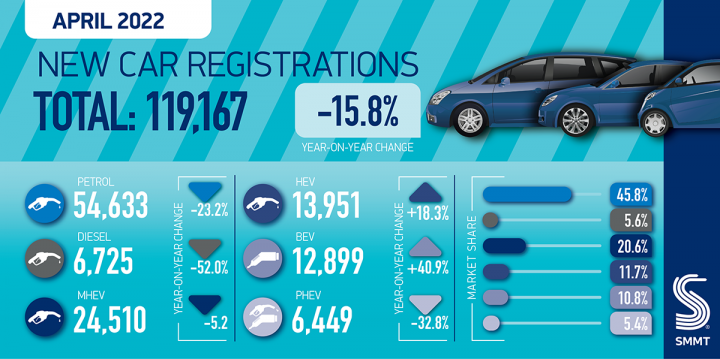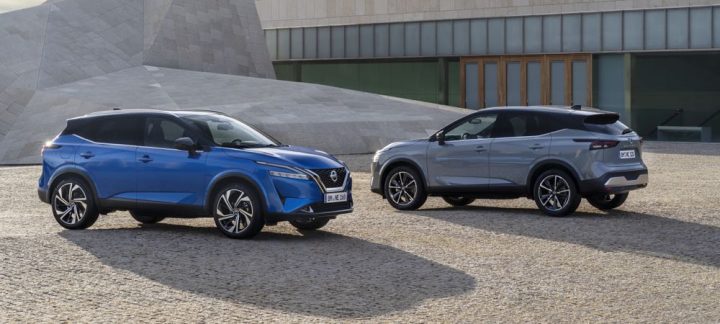New car sales are still crumbling under the weight of supply shortages, rising costs and concerned buyers facing higher costs of living.
UK new car registrations fell by -15.8% to 119,167 units in April, according to the Society of Motor Manufacturers and Traders.

Despite showrooms being open for the entire month, unlike the previous year which saw lockdown restrictions in place until 12 April, global supply chain shortages, of which semiconductors are the most notable, have continued to constrain the delivery of new vehicles.
April’s decline was driven primarily by a -33.3% decrease in large fleet registrations, with manufacturers continuing to prioritise private consumers given robust demand, which helped this market segment see a modest increase of 4.8%. Smaller business registration volumes fared better, growing by 15.4%.
Battery electric vehicles (BEVs) registrations continued to grow with 12,899 of the latest zero emission cars joining UK roads – an increase of 40.9% on the same month last year – and taking a 10.8% market share, up from 6.5% last year. While registrations of hybrids (HEVs) also rose by 18.3%, the number of new plug-in hybrid (PHEV) registrations decreased by a third (-32.8%). As a result, electrified vehicles comprised 27.9% of all new car registrations during April.
More positively, however, drivers able to invest in a new vehicle can still reap benefits, as interest rates remain historically low, grants for BEVs will be in place until at least early 2023, and running costs associated with new electric cars are generally lower than those of petrol or diesel.
Chief executive of the National Franchised Dealers Association Sue Robinson added, “Demand is being dampened by the cost of living pressures. NFDA’s state of the market survey* reveals cost of living increases are the most concerning factor for franchised dealers, followed by the ongoing supply constraints.
“Buying a new vehicle tends to be the second largest purchase in the life of a consumer, after their house. Therefore, franchised dealers are working extremely hard with the customer to ensure quality of service and customer care at a time when inflationary pressures are beginning to impact decision making.”


